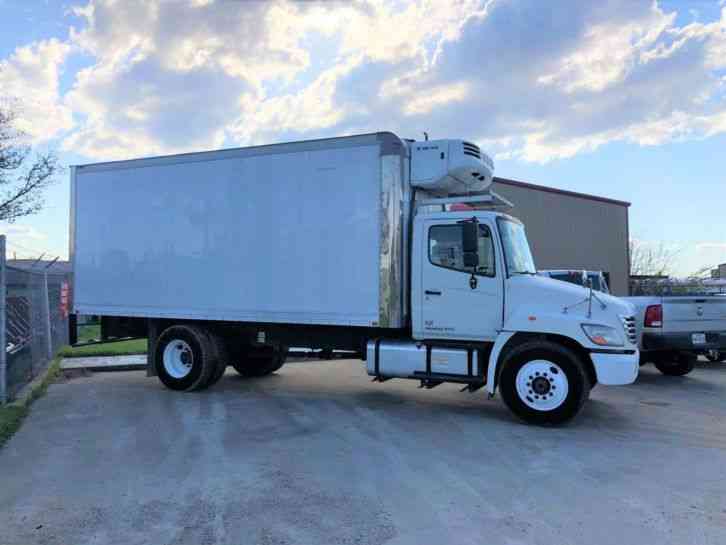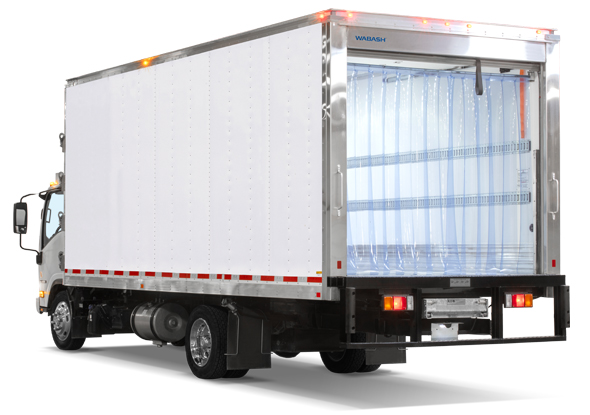Leading Technologies in Transport Refrigeration: Enhancing Effectiveness and Security
The landscape of transport refrigeration is undergoing substantial makeover, driven by developments intended at boosting both effectiveness and security. As these developments continue to progress, it is important to explore their ramifications on operational techniques and governing conformity, motivating a closer assessment of how they reshape the future of transportation refrigeration.
Smart Temperature Monitoring Systems
In the realm of transport refrigeration, clever temperature level tracking systems have actually become an essential technology for making certain the honesty of temperature-sensitive goods. These innovative systems utilize Web of Things (IoT) technology to give real-time information on temperature level changes, allowing drivers to keep optimum problems throughout the supply chain. By continually tracking the temperature level of refrigerated containers and lorries, firms can quickly recognize deviations that might jeopardize product high quality.

Additionally, wise monitoring systems typically include automated notifies and alerts, permitting stakeholders to respond without delay to any potential problems. This positive strategy not just reduces the danger of wasting but also boosts conformity with governing criteria governing food safety and pharmaceutical transport.
The assimilation of data analytics within these systems also assists in predictive maintenance, aiding drivers to foresee prospective equipment failings prior to they occur. This capability lowers downtime and optimizes functional efficiency, eventually bring about cost financial savings.
Eco-Friendly Refrigerants
Smart temperature level surveillance systems play a crucial role in keeping product quality, yet the effectiveness of transportation refrigeration additionally rests on the option of cooling agents used. As ecological problems climb, the shift in the direction of eco-friendly refrigerants has become important. Standard refrigerants, such as hydrofluorocarbons (HFCs), are well-known for their high Global Warming Prospective (GWP), adding considerably to climate change. On the other hand, emerging choices like hydrocarbon-based refrigerants and hydrofluoroolefins (HFOs) existing reduced GWP options, offering both performance and sustainability.
These environmentally friendly cooling agents not just decrease environmental influence but additionally straighten with international regulations intended at phasing out hazardous substances. Their fostering can bring about enhanced energy efficiency, inevitably reducing operating prices for transport refrigeration systems. The use of all-natural refrigerants, such as ammonia and carbon dioxide, has obtained traction due to their excellent thermodynamic properties and reduced ecological impact.
Purchasing environment-friendly refrigerants is not just a governing compliance measure; it stands for a calculated choice that boosts brand name track record and cultivates consumer commitment. reefer trucks thermo king. By prioritizing sustainable methods, companies can add to a greener future while making certain the honesty of transferred items
Advanced Insulation Products
Making use of innovative insulation products is vital for optimizing transport refrigeration systems, as they considerably improve energy effectiveness and maintain regular temperature level control. Typical insulation approaches usually drop brief in protecting against thermal transfer, resulting in increased power consumption and rising and fall temperature levels within chilled areas.
Arising materials such as vacuum cleaner insulated panels (VIPs) and aerogels offer superior thermal resistance, enabling thinner profiles without compromising performance. VIPs, as an example, utilize a vacuum cleaner layer to decrease convective and conductive heat transfer, making them suitable for space-constrained applications. Aerogels, known for their light-weight and porous structure, offer phenomenal insulation while significantly decreasing total system weight.
Moreover, incorporating stage adjustment products (PCMs) right into insulation systems can additionally stabilize temperature levels throughout transit. These products absorb and launch thermal power, successfully buffering against exterior temperature level variations.
The combination of these sophisticated insulation products not only minimizes the operational expenses connected with energy consumption however also extends the rack life of temperature-sensitive goods. As the transport refrigeration industry proceeds to develop, the fostering of innovative insulation technologies will be crucial in boosting both effectiveness and security in chilled transport.
Automated Path Optimization
The effectiveness of transport refrigeration systems is greatly improved through automated path optimization, which leverages advanced algorithms and real-time data to determine the most effective paths for shipment. By analyzing numerous elements such as website traffic patterns, climate condition, and shipment windows, these systems can significantly minimize travel time and gas usage.
Automated route optimization minimizes human mistake and subjective decision-making, which can result in ineffectiveness. This modern technology enables fleet managers to allot resources extra effectively, guaranteeing that chilled goods maintain their required temperature level throughout the journey. By enhancing routes, business can also boost customer fulfillment with timely shipments.
Moreover, automated systems can adapt to unpredicted scenarios, such as road closures or unexpected traffic spikes, enabling dynamic rerouting. This versatility not only protects the stability of temperature-sensitive products however additionally adds to total operational performance.
Carrying out automated path optimization can cause substantial expense financial savings while minimizing the carbon footprint associated with transportation. As organizations progressively focus on sustainability, this development stands apart as an essential component in modern transport refrigeration, aligning functional objectives with environmental responsibility. Ultimately, automated path optimization stands for a significant development in the pursuit for performance and safety and security in transportation refrigeration.

Real-Time Data Analytics
Automated path optimization considerably gain from the assimilation of real-time information analytics, which provides critical insights into the performance of transportation refrigeration systems. By utilizing real-time data, transport drivers can keep track of temperature level changes and equipment performance, guaranteeing that disposable items are kept within needed specifications throughout transportation. This proactive approach not only enhances the high quality of the moved items but also mitigates the risk of putridity and loss.

In enhancement to improving effectiveness, real-time analytics improves safety and security by making sure compliance with regulatory criteria for temperature level control. This not only protects public wellness but additionally strengthens a company's credibility - refrigerated transportation thermo king. As the transportation refrigeration market progresses, the combination of real-time information analytics emerges as a keystone for driving advancement, sustainability, and functional quality
Verdict
In conclusion, the advancements in transportation refrigeration considerably improve both efficiency and security within the industry. Smart temperature tracking systems official site and real-time data analytics supply critical oversight, while environmentally friendly refrigerants and progressed insulation products add to sustainability and energy efficiency. In addition, automated path optimization formulas not only reduce travel time yet additionally lessen ecological influence. Collectively, these innovations stand for an important development in transportation refrigeration, making sure conformity with regulatory criteria and promoting a greener future.
The landscape of her comment is here transport refrigeration is undergoing significant change, driven by technologies aimed at boosting both performance and security.Smart temperature surveillance systems play a vital duty in preserving product top quality, but the efficiency of transportation refrigeration also pivots on the selection of refrigerants made use of. Their adoption can lead to boosted energy effectiveness, inevitably lowering operating costs for transportation refrigeration systems. Ultimately, automated path optimization represents a considerable innovation in the mission for effectiveness and security in transport refrigeration.
In conclusion, the improvements in transportation refrigeration considerably improve both effectiveness and security within the sector.
Comments on “Reefer Trucks Thermo King: Trusted for Temperature-Sensitive Product”